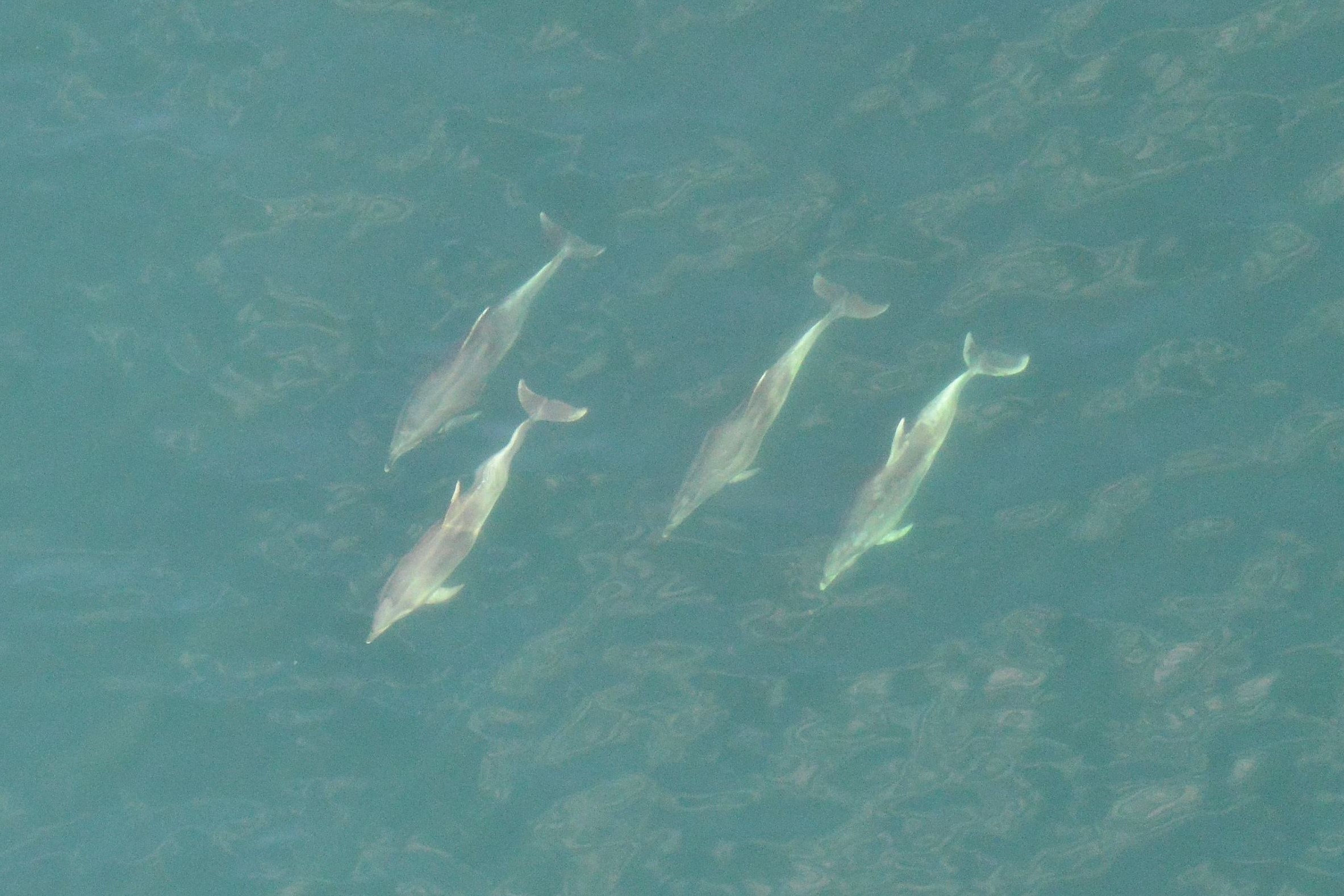In 2018, we performed a total of 225 flight hours over the North Sea in the framework of the national programme of aerial surveys. This contribution lists the most important results, with focus on the core tasks: surveillance of marine pollution and monitoring of the marine environment. 16 cases of operational discharges by ships have been observed, and suspect sulphur values have been measured in the smoke plumes of 73 vessels. With this sulphur emission monitoring effort, Belgium plays an international pioneering role which arouses an increasing interest, even from far outside Europe. The plane also successfully participated in an internationally coordinated surveillance mission of the oil and gas installations in the central part of the North Sea. Furthermore, the aircraft performed some important marine mammals counts, with record densities of harbour porpoises observed in the Belgian waters in the spring of 2018.
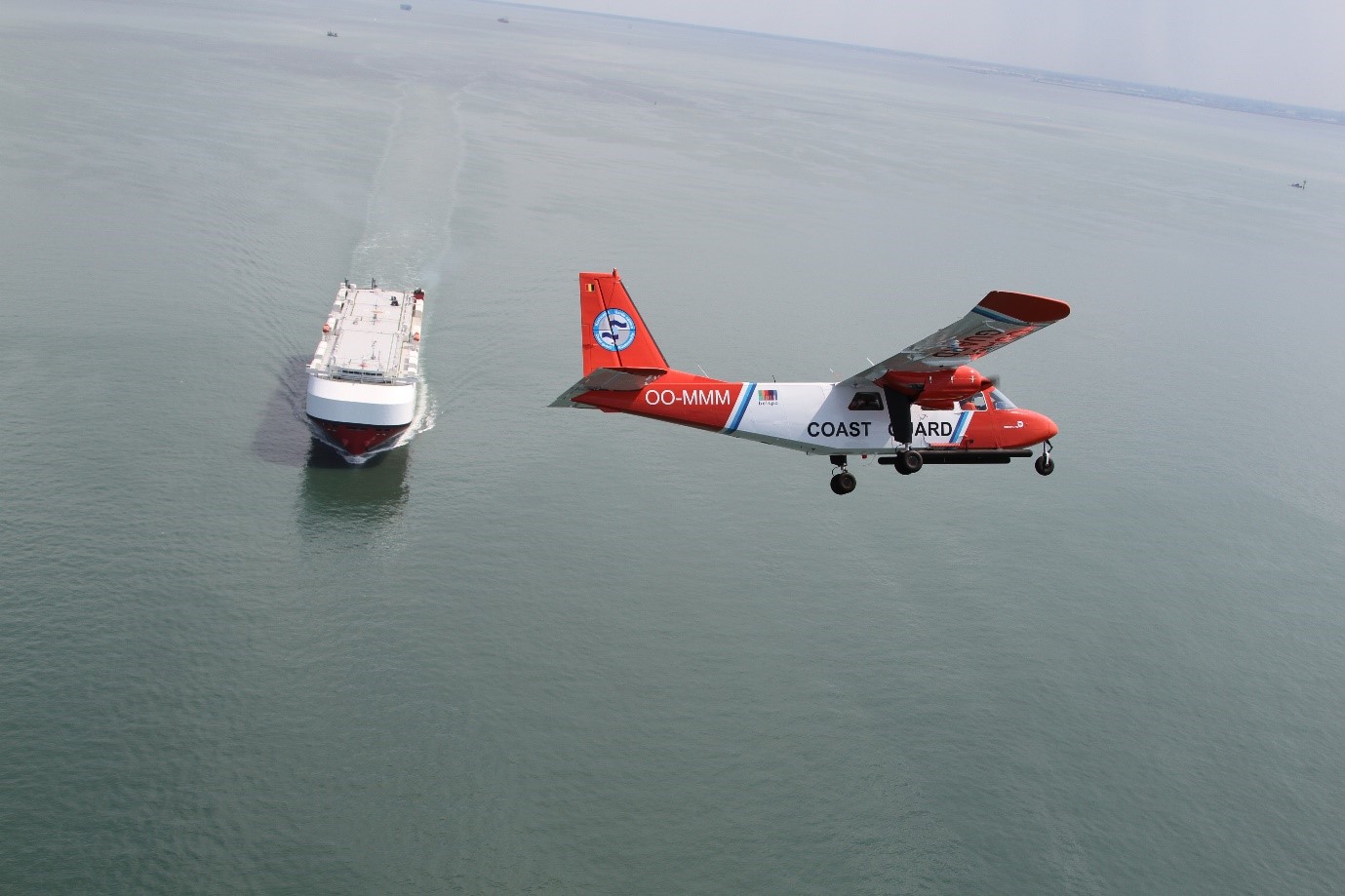
Overview of surveillance flights
A total of 225 flight hours have been performed in the framework of the national North Sea aerial survey programme in 2018. This programme is organised by the scientific service MUMM (Management Unit of the Mathematical Model of the North Sea) of the Royal Belgian Institute of Natural Sciences, in collaboration with the Ministry of Defence. Most of the flight hours were for national flights (178 hours):
- 162 hours in the context of the Belgian Coastguard structure:
- 121 hours for pollution control, equally divided over the detection of discharges of oil and other harmful substances (MARPOL Annex I, II and V) and the monitoring of sulphur emissions from ships (MARPOL Annex VI / SECA enforcement);
- 37 hours for fishery control, on behalf of and in cooperation with the Flemish Fishery Inspection Services;
- 4 hours in response to specific alerts and for airborne support in pollution combating exercises
- 16 hours for marine mammal monitoring
A smaller part (47 hours) have been spent on international missions, of which 25 hours on sulphur emission monitoring in Dutch waters on behalf of the Dutch competent authorities, and 22 hours on the Tour d’horizon-mission for aerial surveillance of offshore oil and gas installations in the North Sea, an international mission framed in the Bonn Agreement.
Discharges from ships
Fortunately, the Belgian waters have not been affected by pollution as a result of shipping accidents (accidental pollution) in 2018. On the other hand, 16 cases of operational discharges from ships have been observed:
- Five oil spills, all of minor volumes. In four of these cases, a spill was found without a vessel in the area. In one case however, a visual link could be made with a vessel, in Belgian waters. For this MARPOL Annex I violation case, a subsequent port investigation was performed in Hamburg, and an official statement was sent to the competent Prosecutor’s office.
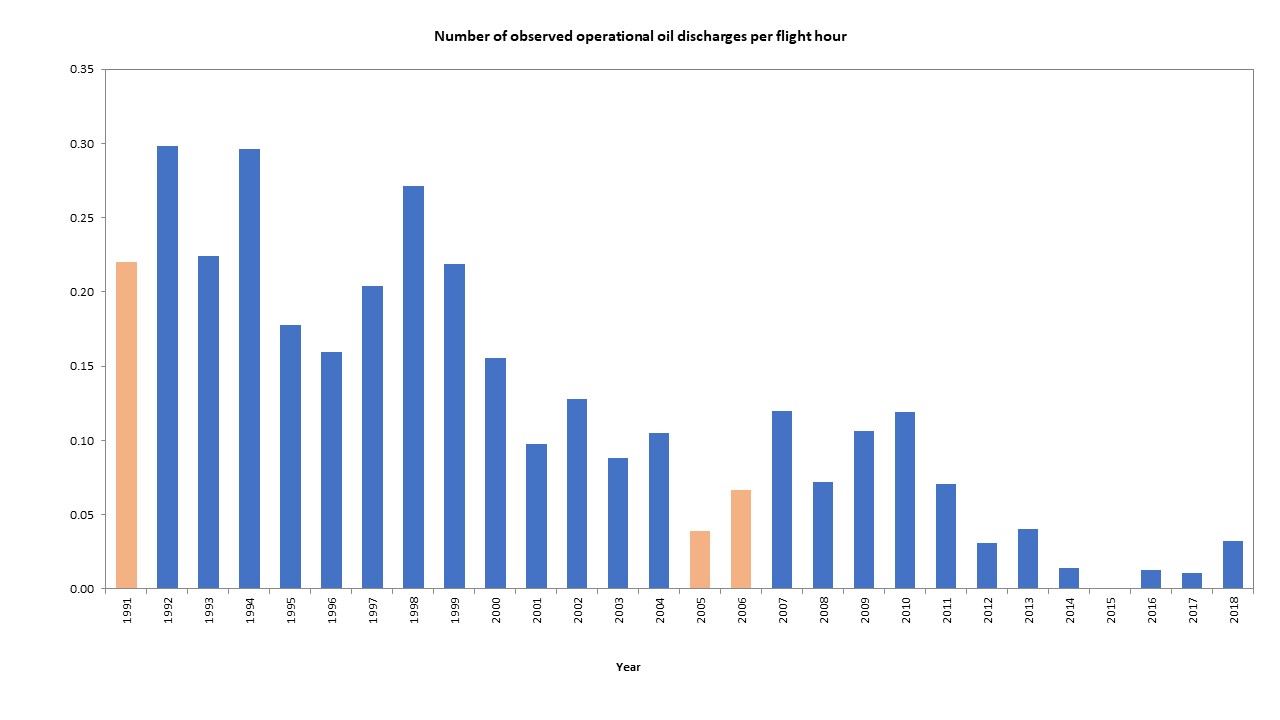
- Ten spills of other harmful substances than oil (MARPOL Annex II). In none of these cases however a link could be made with a polluter.
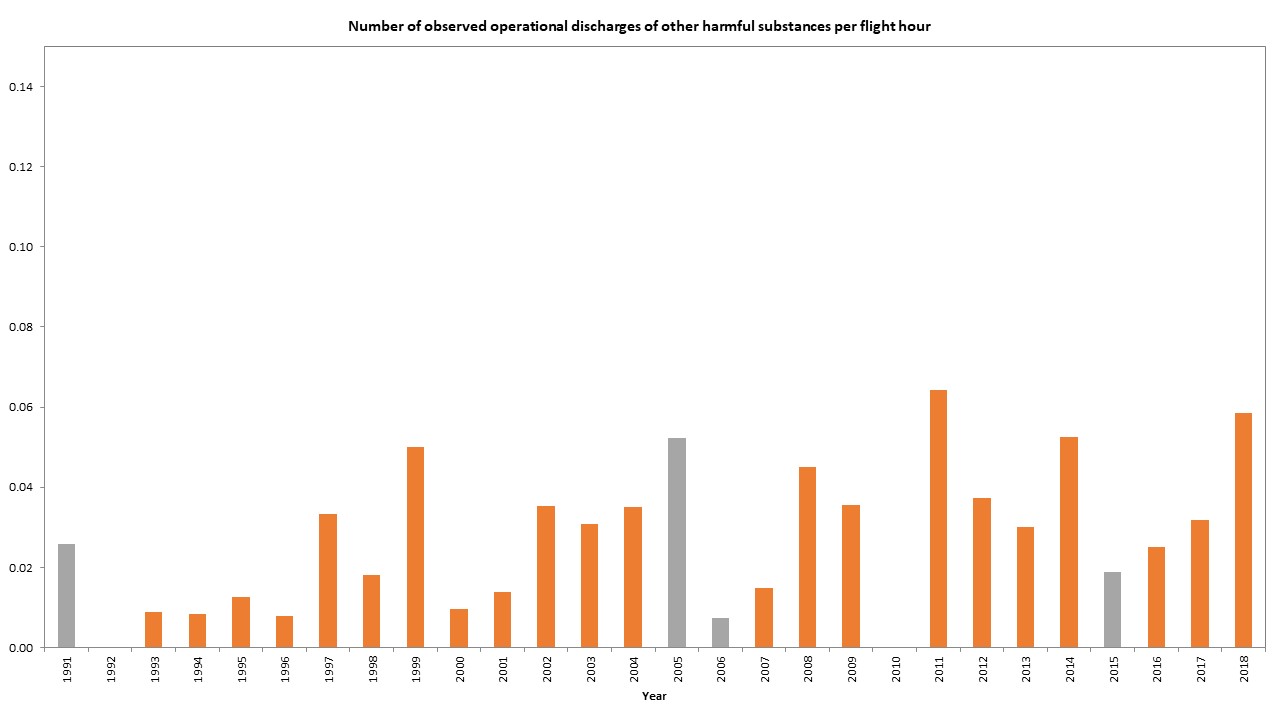
- One case of a suspected MARPOL Annex V violation by a vessel (non-permitted release of solid cargo residues) observed in Belgian waters. In this case the suspected vessel underwent a port inspection in Rotterdam, followed by the delivery of an official statement to the competent Belgian Prosecutor’s office.
Monitoring of sulphur emissions from ships at sea
During 88 hours of sniffer flights over the Belgian and Dutch waters, monitoring compliance with the stringent fuel sulphur content limits for ships sailing in the North Sea SECA (Sulphur Emission Control Area), the sulphur emissions of a total of 1139 ships were effectively measured at sea. 73 of these vessels showed suspiciously high sulphur values. These cases were systematically reported to the competent maritime inspection services for a further follow-up in port.
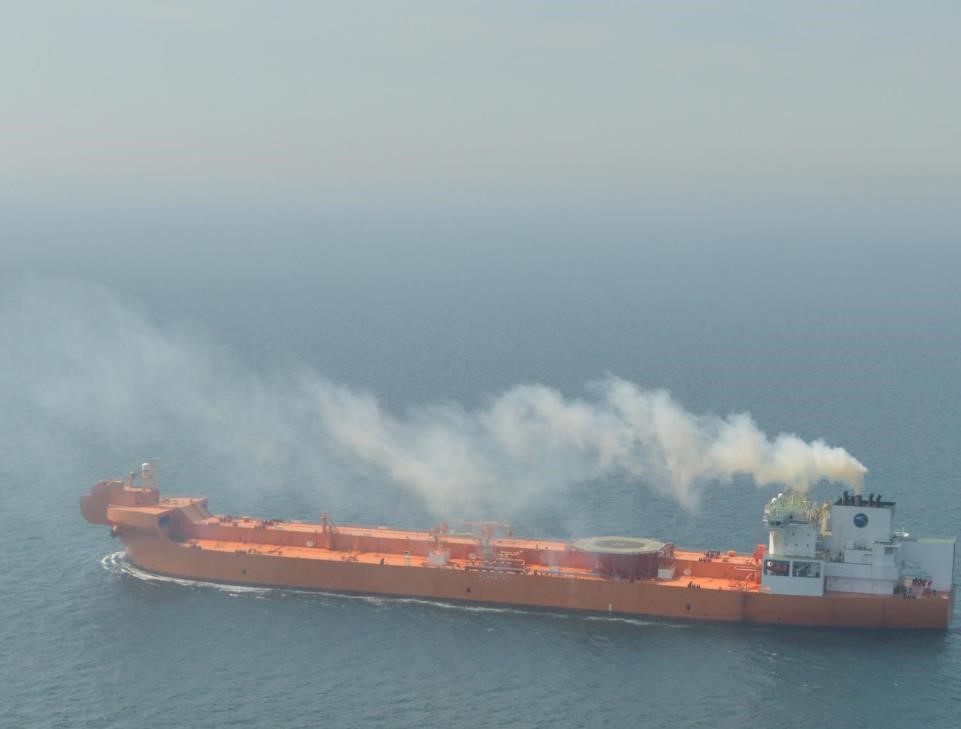
At this moment Belgium is one of the few countries performing such offshore monitoring of sulphur emissions of individual ships. The gained experience and results, also in terms of subsequent port inspections of suspected vessels, have led to considerable interest in Europe and beyond.
International ‘Tour d’Horizon’ mission
During the annual TdH-mission for the surveillance of offshore platforms in the central part of the North Sea (in Dutch, German, Danish, Norwegian and British waters), performed in the framework of the Bonn Agreement, the Belgian surveillance aircraft detected 26 pollutions, of which 23 oil detections could be directly linked to offshore installations. One oil spill and 2 spills of other harmful substances had no vessel or platform in the vicinity. These detections were systematically reported for further follow-up to the competent coastal State, in accordance with agreed international procedures.
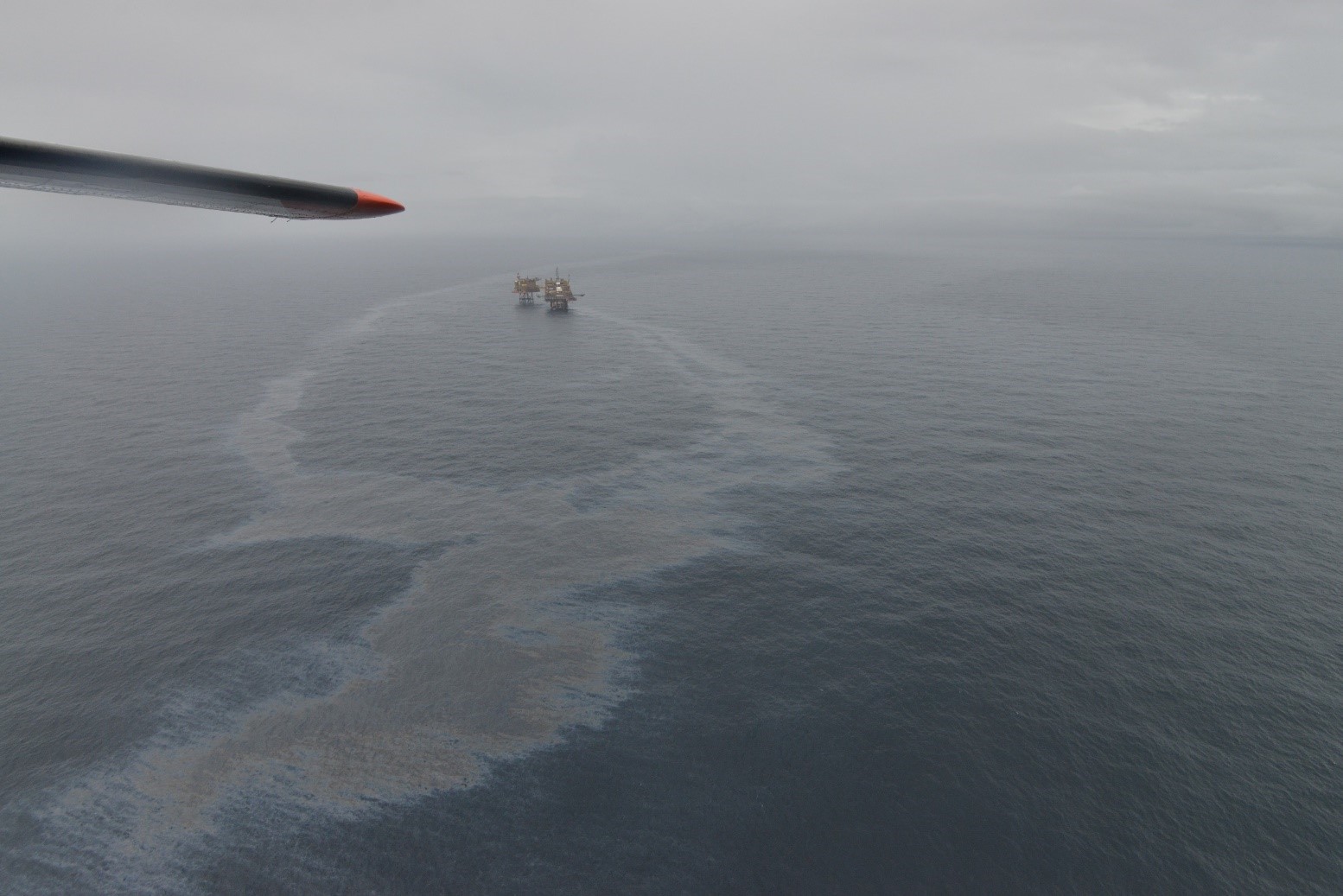
Marine mammal monitoring off the Belgian coast
In April, July and October 2018, marine mammal monitoring campaigns were performed over the entire Belgian marine area. During these campaigns, a total of 501 marine mammals (mainly harbour porpoises) were observed along the standard flight pattern. A remarkably high density of harbour porpoises was observed during the April survey (estimate of an average density of more than 5 porpoises per km²). An exceptional pod of 25 bottlenose dolphins was observed off the Belgian coast during the monitoring flight in July, a sighting that received a lot of media attention.
